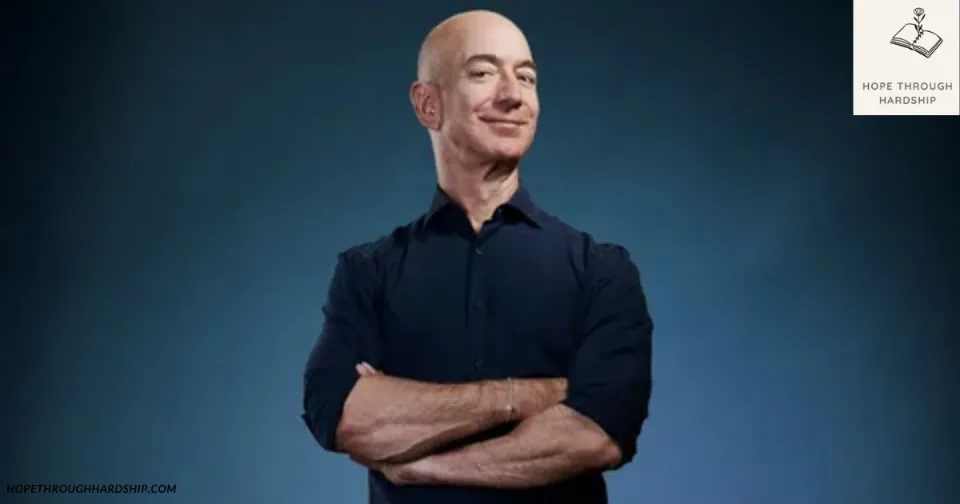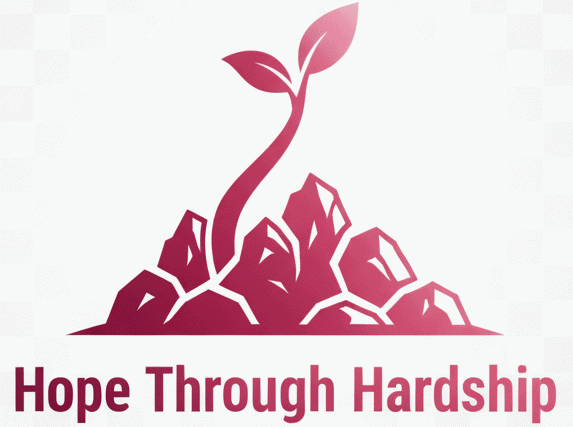America’s most influential e-commerce visionary transformed how people shop, read, and consume entertainment worldwide. Jeff Bezos built Amazon from a garage startup into a trillion-dollar empire that revolutionized multiple industries simultaneously. His entrepreneurial philosophy combines relentless customer focus with long-term strategic thinking, creating unprecedented business success.
Throughout his journey from Wall Street analyst to global business icon, Bezos developed unique perspectives about risk-taking, innovation, and organizational leadership. His approach toward building sustainable competitive advantages reflects a deep understanding of market dynamics and consumer behavior. These carefully selected quotations reveal the mindset that created America’s most valuable retail enterprise.
1. “We’ve had three big ideas at Amazon that we’ve stuck with for 18 years, and they’re the reason we’re successful: Put the customer first. Invent. And be patient.”
This foundational statement encapsulates Amazon’s core business philosophy that transformed e-commerce forever. Customer-centricity combined with continuous innovation and long-term thinking creates sustainable competitive advantages that short-term focused competitors cannot replicate. Bezos understood that American consumers value convenience and selection above traditional retail limitations.
Amazon’s remarkable growth stems from an unwavering commitment to these three principles across every business decision. When competitors focused on quarterly earnings, Amazon invested profits into infrastructure, technology, and customer experience improvements. This strategic patience enabled market dominance through superior value delivery rather than traditional competitive tactics.
Transform your business approach by prioritizing customer satisfaction over immediate profitability. Invest resources in innovative solutions that address genuine customer problems rather than incremental product improvements. Develop long-term planning systems that maintain strategic focus despite short-term market pressures.

Implementation Strategy for American Entrepreneurs
Create customer feedback systems that directly influence product development decisions. Allocate specific budgets for experimental projects with uncertain returns but potential breakthrough value. This systematic approach mirrors Amazon’s methodology for creating industry-disrupting innovations.
2. “I knew that if I failed, I wouldn’t regret that, but I knew the one thing I might regret is not trying.”
This powerful reflection on risk assessment demonstrates Bezos’ approach to overcoming fear-based decision paralysis. American culture often emphasizes security over opportunity, yet Bezos recognized that regret avoidance provides clearer decision-making frameworks than traditional risk analysis. The pain of unexplored potential exceeds the discomfort of temporary failure.
Bezos left a lucrative Wall Street career to launch Amazon despite uncertain outcomes and family concerns. This decision required distinguishing between reasonable security needs and limiting fear patterns. His framework prioritizes calculated courage over comfortable conformity when meaningful opportunities arise.
Evaluate major decisions using regret minimization rather than risk maximization frameworks. Imagine yourself at age eighty reflecting on current choices, identifying which paths you’d regret not exploring. This perspective shift often reveals that failure risks seem manageable compared to the opportunity costs of inaction.
3. “Your brand is what other people say about you when you’re not in the room.”
This insight reveals Bezos’ sophisticated understanding of reputation management in America’s interconnected marketplace. Traditional marketing focuses on controlled messaging, yet authentic brand value emerges from customer experiences and word-of-mouth recommendations. Reputation authenticity cannot be manufactured through advertising alone.
Amazon’s brand strength developed through consistent delivery performance rather than clever marketing campaigns. Bezos invested heavily in operational excellence because customer satisfaction creates organic promotion that paid advertising cannot achieve. This approach builds sustainable competitive moats through genuine value creation.
Focus brand development efforts on customer experience improvements rather than promotional messaging campaigns, Schmidt. Create systems that ensure consistent service delivery across all customer touchpoints. This experience-driven branding generates authentic advocacy that traditional marketing approaches cannot replicate.
Brand Building Through Excellence
Implement customer service protocols that exceed industry standards consistently. Monitor online reviews and feedback channels to identify specific areas where customer experiences fall short. Transform these insights into operational improvements that strengthen brand perception organically.
4. “If you double the number of experiments you do per year, you’re going to double your inventiveness.”
This mathematical approach to innovation demonstrates Bezos’ systematic methodology for breakthrough discovery. Most American businesses conduct insufficient experimentation due to failure aversion, limiting their innovative potential significantly. Experimental frequency increases successful discovery rates through expanded opportunity exposure.
Amazon’s culture encourages controlled experimentation across all business functions, from product features to operational processes. Failed experiments provide valuable learning data that prevents larger mistakes, while successful tests scale rapidly across the organization. This approach treats innovation as a systematic process rather than random inspiration.
Establish monthly experimentation quotas for your team members, encouraging small-scale tests with measurable outcomes. Create documentation systems that capture lessons from both successful and failed experiments. This systematic innovation approach accelerates learning while minimizing resource waste.
5. “What’s dangerous is not to evolve.”
This succinct warning reflects Bezos’ understanding of competitive dynamics in rapidly changing markets. American businesses often resist change to protect existing advantages, yet market evolution continues regardless of participation preferences. Adaptive evolution becomes essential for maintaining relevance in dynamic environments.
Amazon continuously transforms its business model, expanding from books to general retail to cloud computing and artificial intelligence. Rather than protecting legacy revenue streams, Bezos consistently pursued emerging opportunities that cannibalized existing products. This proactive evolution prevents competitors from disrupting established market positions.
Regularly assess your current business model for potential obsolescence risks and emerging competitive threats. Invest resources in developing next-generation capabilities before current advantages become vulnerable. This preemptive evolution maintains competitive positioning through continuous transformation.
6. “Disagree and commit”
This leadership principle enables rapid decision-making despite imperfect information or team consensus. American corporate culture often requires unanimous agreement before action, creating analysis paralysis that slows competitive response times. Committed execution of imperfect decisions often produces better results than delayed pursuit of perfect solutions.
Bezos implemented this principle throughout Amazon’s organization, encouraging healthy debate followed by unified implementation regardless of initial disagreement. Team members could voice dissenting opinions while committing fully to executing final decisions. This approach balances collaborative input with decisive leadership.
Establish decision-making protocols that separate discussion phases from execution phases. Encourage team members to express concerns during planning while expecting full commitment during implementation. This decisive collaboration accelerates organizational velocity while maintaining quality input.
Practical Decision Framework
Create specific timeframes for discussion and debate on important decisions. Once deadlines arrive, require unanimous commitment to chosen directions regardless of initial preferences. This systematic approach prevents endless deliberation while ensuring thorough consideration.
7. “I believe you have to be willing to be misunderstood if you’re going to innovate.”
This philosophical insight addresses the social challenges of pioneering new approaches in conservative environments. Americans often seek social approval that conflicts with innovative thinking requirements. Misunderstanding tolerance becomes necessary for pursuing breakthrough ideas that conventional wisdom discourages.

Amazon faced significant criticism for prioritizing growth over profitability during its early years. Wall Street analysts questioned Bezos’ strategy while he focused on building long-term competitive advantages. This willingness to appear unconventional enabled strategic decisions that eventually validated his approach.
Develop emotional resilience for pursuing innovative strategies despite external skepticism or criticism. Create advisory networks with people who understand long-term strategic thinking rather than conventional metrics. This conviction strength enables breakthrough pursuits that popular opinion might discourage.
8. “A company shouldn’t get addicted to being shiny, because shiny doesn’t last.”
This warning against superficial focus reflects Bezos’ emphasis on substance over appearance in building sustainable businesses. American startup culture often prioritizes impressive demonstrations over fundamental value creation. Substance prioritization builds lasting competitive advantages that flashy presentations cannot provide.
Amazon’s success stems from operational excellence and customer value delivery rather than impressive technology demonstrations or media attention. Bezos consistently invested in unsexy infrastructure improvements that enhanced customer experiences without generating publicity. This approach builds sustainable advantages through genuine value creation.
Evaluate your current business priorities to identify areas where appearance concerns override substance development. Redirect resources toward fundamental improvements that create genuine customer value rather than impressive demonstrations. This value-focused approach builds sustainable competitive positioning.
Sustainable Advantage Development
Invest in operational capabilities that improve customer experiences even when these improvements aren’t immediately visible to markets. Focus marketing communications on tangible benefits rather than impressive-sounding features that lack practical value.
9. “The common question that gets asked in business is, ‘why?’ That’s a good question, but an equally valid question is, ‘why not?'”
This perspective shift demonstrates Bezos’s approach to opportunity evaluation and risk assessment. Traditional American business education emphasizes justification requirements for new initiatives, yet this bias toward inaction prevents exploration of potentially valuable opportunities. Exploratory questioning reveals possibilities that defensive thinking might overlook.
Amazon’s expansion into cloud computing began with “why not?” thinking rather than detailed market research proving demand certainty. This openness to experimentation enabled first-mover advantages in markets that didn’t exist when conventional analysis would have been possible. Curiosity-driven exploration often reveals breakthrough opportunities.

Restructure opportunity evaluation processes to include “why not?” analysis alongside traditional risk assessment. Create small-scale experimentation budgets that enable exploration without requiring extensive justification. This curiosity-driven approach uncovers possibilities that conventional analysis might miss.
10. “In the end, we are our choices.”
This philosophical conclusion reflects Bezos’ belief in personal responsibility and intentional decision-making. Americans often feel constrained by circumstances beyond their control, yet sustained success requires recognizing the cumulative impact of individual choices. Choice ownership empowers proactive life direction rather than reactive response patterns.
Bezos transformed from a middle-class upbringing to global influence through consistent choice-making that prioritized long-term potential over short-term comfort. Each decision reflected deliberate values rather than circumstantial reactions. This approach creates intentional life trajectories rather than accidental outcomes.
Examine your recent major decisions to identify patterns that reflect your authentic values and priorities. Create decision-making frameworks that align choices with long-term objectives rather than immediate convenience. This intentional living approach creates purposeful life direction through accumulated conscious choices.
Transform decision-making from reactive to proactive by establishing clear personal values and long-term objectives. Use these guidelines to evaluate opportunities and challenges, ensuring choices support your authentic vision rather than external expectations or immediate pressures.
Faqs
Most famous quote: “To be or not to be, that is the question.” – William Shakespeare
5 motivational quotes: “Believe you can and you’re halfway there.” – Theodore Roosevelt; “Don’t watch the clock; do what it does. Keep going.” – Sam Levenson; “Your time is limited, don’t waste it.” – Steve Jobs; “Success is not final…” – Winston Churchill; “Push yourself, no one else will.”
Jeff Bezos’ motto: “Work hard, have fun, make history.”
Jeff Bezos’ most famous quote: “Your brand is what other people say about you when you’re not in the room.”
Famous Jeff Bezos phrase making a comeback: “It’s always Day 1.”

